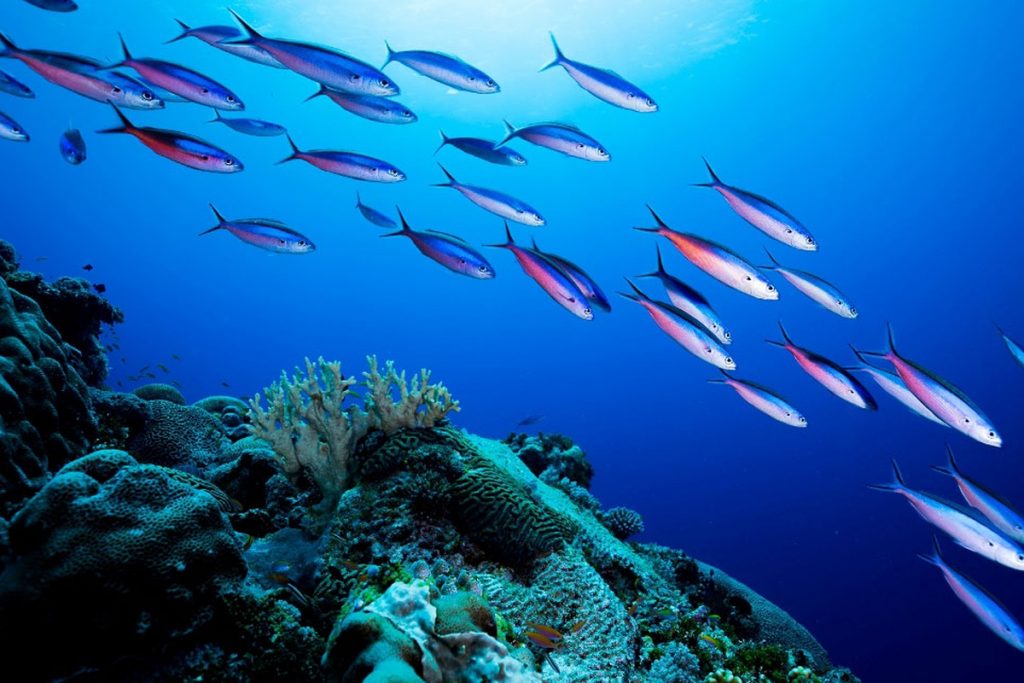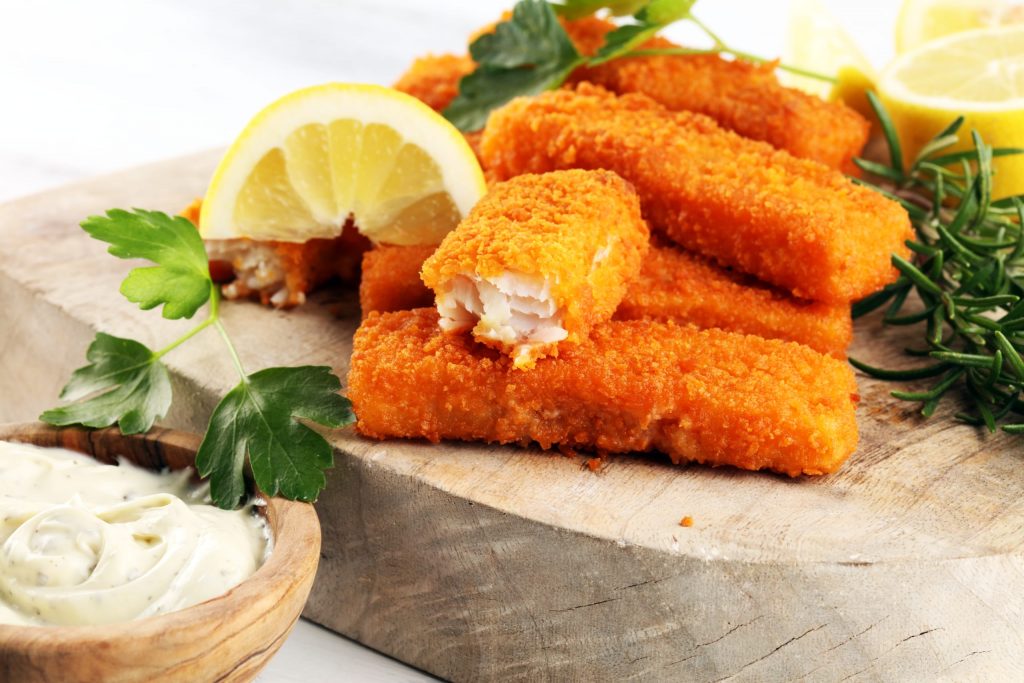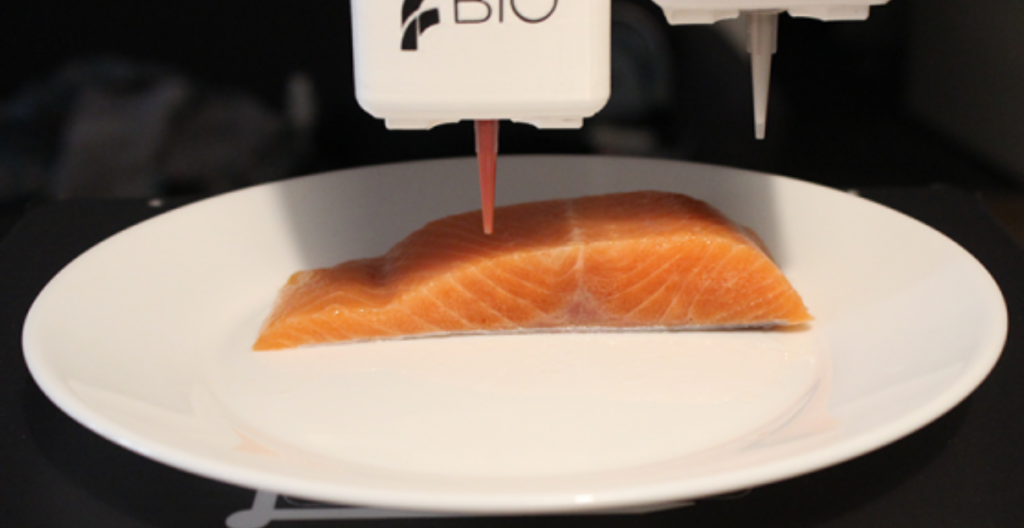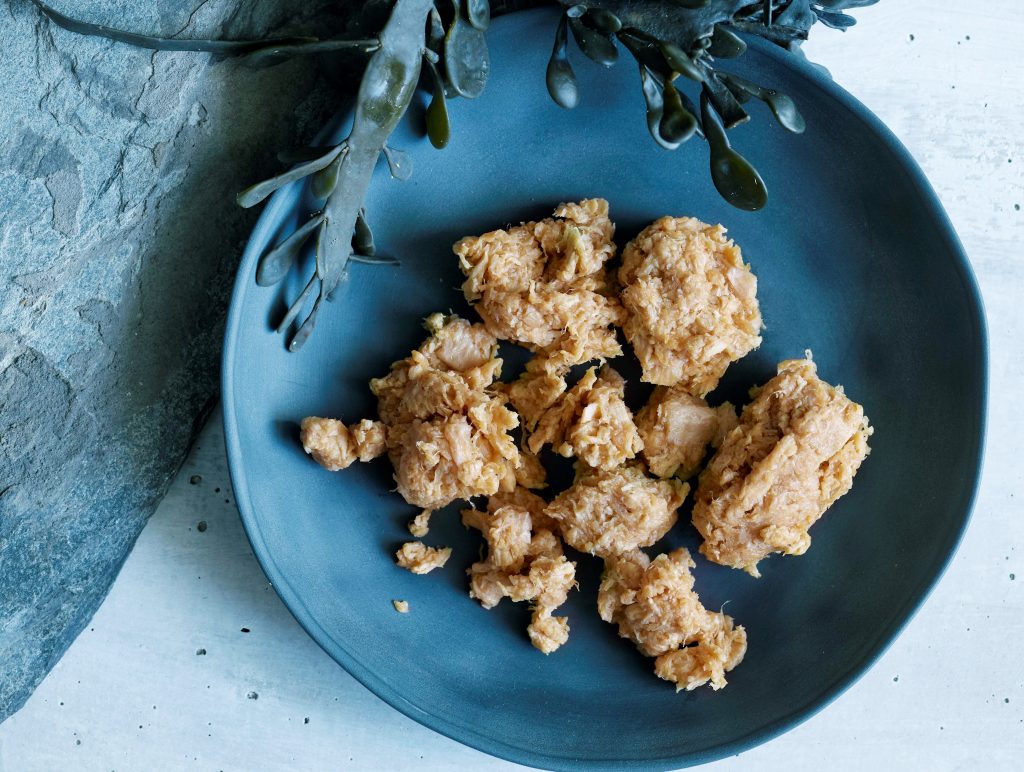We already covered two other categories identified as having a major potential impact on our food systems: chicken and egg alternatives. The choice of these categories didn’t come out of nowhere. It was based on industry and consumer research, as well as our work with startups and industry experts.
Why? Despite the growth of plant-based and cultivated industries in recent years, some areas are still not ready to reach consumers’ expectations, as is the case of our featured impact areas. Also, people all over the world consume massive quantities of the animal-based products for these categories.
By moving from animal-based products to plant-based or cultured alternatives, it is possible to start reducing much of the animal suffering and environmental harm which are the by-products of our current food systems.. Considering the global consumption rates of chicken, eggs, and fish products, there is a vast potential for alternatives to function on a massive scale. Seafood consumption, for instance, has a global demand of 143.8 million tonnes per year. It’s well-past time for fish and seafood alternatives to be taken seriously.

The risk to our oceans
Oceans are home to incredible biodiversity, with millions of different species of sea life. It is in the ocean that some of the most important functions for life on earth occur. Including the carbon, nitrogen, and phosphorus cycles that are responsible for maintaining the earth’s climate.
Pollution and overfishing, however, are putting these precious environments at risk. Overfishing – catching too many fish at once and discarding the ones that are not commercially valuable – is one of the biggest threats to oceanic wildlife. Vulnerable species – including sharks, dolphins, and turtles – are frequently caught by mistake and the outcome is no good: they get injured or killed, becoming even more vulnerable.
What about aquafarming? You might ask. This is also not a sustainable solution. Fish farming entails other several issues. For instance, the majority of fish in this system are fed with other wild fish. It can take 3 kg of wild fish forage to feed 1 kg of farmed fish. Furthermore, the use of antibiotics, pesticides, and antifoulants introduced by aquafarming are all causes of pollution in the marine environment.
An increasing number of consumers are keen to change their diets and adopt plant-based seafood alternatives.
Plant-based fish and seafood market
According to a survey by ProVeg International, the market for fish and seafood alternatives is still incipient. The options found in the market are mainly fish fingers or burger patties, which doesn’t catch the consumers’ attention so much. Overall, 82% of the interviewees in this survey want to see more options of plant-based seafood in the markets because there are not enough alternatives, yet!
However, the situation is expected to change and improve. The market for alt-fish is expected to grow 13x in the next decade, reaching a global valuation of $1.3 billion. This market is both a challenge and an opportunity. Considering that seafood is much harder to mimic than beef or chicken and at the same time is increasing steadily and open for innovations.
Usually it is possible to find plant-based tuna, shrimp, caviar, and fish sticks in the market. And what about the ingredients? Seafood and fish alternative products are mainly based on soy, seaweed, yeast, different legumes and vegetable oils.

Disruptive trends
Turning now to cellular agriculture, cell-based fish and seafood options are also being developed as a possible solution to change our path towards damaging the oceans. Cultured seafood is made by extracting cells from the target species and growing them in a bioreactor, before using these tissues to develop products.
We still have a long way to go when it comes to this topic, though. The first companies developing cell-based seafood alternatives are mainly in testing stages, and their products are not yet on the market. Furthermore, cell-based fish brings several advantages, such as lower CO2 footprint, water and energy use, absence of pollutants, among others.
Another possible alternative we will see in the next few years is the 3D-printed fish. A student startup, Revo Foods, is ready to disrupt our food systems by printing plant proteins and blinders in structured forms. Their focus now is on plant-based salmon fillets made from mushrooms, pea protein, starch, and avocado or seeds to include the omega-3 fatty acids.

Discovering the market
Although the alternative fish and seafood market is still in its infancy, it’s already possible to find different options to enjoy. Here are some of the companies developing fish and seafood alternatives that you might not know yet:
Ocean Hugger Foods
Founded by one of ProVeg Incubator mentors, David Benzaquen, Ocean Hugger Foods is available at several restaurants in the US. The startup develops Ahimi, a plant-based alternative to raw tuna and Unami, made from eggplant to substitute freshwater eel (unagi).
Hooked
The Swedish startup, based in Stockholm, was founded in 2019 and joined the ProVeg Incubator in 2020. Hooked is creating the world’s first plant-based shredded salmon that can be used for a wide range of dishes. Their plant-based fish products can be found in several Swedish restaurants. So, if you are planning a trip to Sweden, don’t miss the opportunity to try it!

Mister Veg
Based in Faridabad, India, Mister Veg was a member of one of our startup cohorts in 2020. Within their range of plant-based products, they developed with Fishless Pomfret and Fishless Salmon with high nutritional value and affordable prices. Mister Veg will soon release the option for buying their products online!
Good Catch
Good Catch has a wide range of plant-based seafood products. From fish fillets to crab cakes to plant-based tuna with Mediterranean spices, among others. It’s possible to buy their products through the website if you are based in the US. Luckily, Good Catch has also expanded to Europe and is available in several retailers in the UK, Spain, and the Netherlands.

